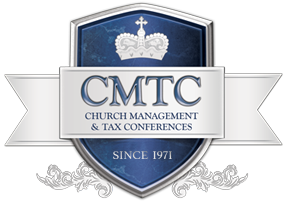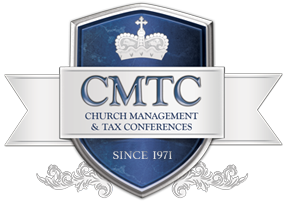Although some Government regulations are necessary, many seem to go out of their way to further impede the Church from engaging in its mission. One of these is the newly proposed overtime pay changes that may be imposed very soon by the Department of Labor (DOL) and the Fair Labor Standards Act (FLSA).
Many Churches do not have the luxury of a large bank account to fund everything they desire to do. The Pastor and most of his or her staff are subjected to long hours due to normal dictates of ministry. Most Pastors I know are subject to be “on-call” and available 24/7 as needs of the membership dictate.
Because of this the newly proposed overtime pay changes may deal a crushing blow to the budget of many Churches if the Pastor does not prepare now and make some necessary changes to the way the Church and ministry operate.
DOL Worker Classification
The Department of Labor classifies workers as “exempt” or “non-exempt” for overtime purposes. Some employees who are paid hourly and earn less than a certain amount are considered as “non-exempt” workers and are protected by overtime regulations. This protection entitles them to overtime pay of one and one-half times their regular rate of pay for any hours they work beyond the 40 hours of the normal payroll week.
“Exempt” workers are not protected by the overtime regulations because they earn more than the required income threshold. Most of these employees are professional employees who are most often considered to be “white collar workers.”
In 2004 the DOL increased the income threshold for overtime protection to $23,660.00 per year ($455.00 per week). This implied that those working in “white collar” positions earned more than this threshold. Anyone earning less than $23,660.00 per year qualifies for overtime protections.
New Overtime Regulation Proposals
Recently, the President of the USA signed an order instructing the DOL to offer proposals of revision to the current overtime protection regulations.
In response to the President’s request, the DOL proposed the overtime exemption be increased from $23,660 per year ($455.00 per week) to $970.00 per week ($50,440.00 per year).
If this proposal becomes law, it will surely affect businesses, but what impact/burden will it place upon the average Church in the USA?
The Affect of the Proposed Regulation on the Church
Churches have two classifications of employees:
- Ordained
- Non-ordained
The proposed changes by the DOL will affect each classification differently.
In the 2004 Economic Report, when the income threshold was increased, the DOL stated several times that Clergy and Religious occupations are exempt from the FLSA’s overtime regulations. They stated that self-employed, unpaid volunteers, and Clergy and Religious workers were excluded from the ruling.
There are also many court precedents within the Federal Court System that has determined that ministers are exempt from overtime regulations.
Ministers are not strangers to an extended work week. Working more than 40 hours per week is common for those in Ministry. Common sense should dictate this. What if someone was rushed to the hospital in the middle of the night and when the Pastor was called to go and administer spiritual and emotional comfort that Pastor had to tell the family that he could not go because it would place him in an overtime situation?
In the new ruling we expect for this practice of exempting Clergy from the overtime regulations, to continue. But, how will non-ordained employees – those solely performing administrative functions – be affected? The financial demand that will be assessed to the Church will be astronomical.
Pastors and Trustees should begin now to protect themselves and their Church, should this proposal become law. This can be done several ways.
- Strictly enforce the 40 hour work week for non-ordained employees
Remember, if the Church demands employees attend the Church Worship Services, the time spent in the service must be considered as work.
- Increase the base pay of the employee to an amount that exceeds the threshold
This may be the viable option for any Church that cannot feasibly reduce the work week to 40 hours.
- Get all employees ordained with the International Congress of Churches and Ministers
Once ordained the Church can restructure the job description and hence be exempt.
Why Should the Christian Church Worker Be Ordained
2 Corinthians 5:18 declares all Christians to be ministers. The Internal Revenue Service only recognizes the term minister. The Church should require staff to be ordained and then the Church can change the job description of the employees to become ministerial with occasional administrative duties. Most of those working in a Church are really a “Jack-of-all-Trades” – even the Administrator at times provides spiritual comfort and guidance to others.
Once the Christian Church employee is ordained, he or she can then begin to perform Sacerdotal duties which, in turn, allows him or her certain IRS benefits and, if the precedents remain, the ordained Church worker performing Clerical and administrative functions would be exempt from the overtime rules.
The International Congress of Churches and Ministers (ICCM) is the best, largest and fastest growing non-denomination ordaining body in the world. Our credentials are recognized world-wide and receive the greatest respect from religious and secular sources around the globe.
Ordain your Christian members and employees now.
In Closing
ICCM enjoys the same credibility and integrity as our Church Management and Tax wing of Chitwood and Chitwood. With 77 years of providing counsel and ministry to Churches all across the globe, we know what it takes to lighten the burdensome load placed upon most Pastors and Churches.
Do Not Delay! Contact us at www.cmtc.org or call 800-344-0076 to attend the nearest Church Management Conference. For Ministerial Credentials contact ICCM at www.iccmworldwide.org or call 800-854-5891 to begin the ordination process.

